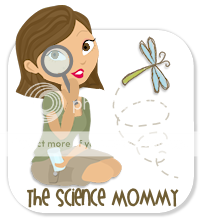I love fall evenings and watching the moon. Since it's dark a bit earlier, it's easier for Kid Scientists to observe changes in the Moon's appearance.
Purpose: Kid Scientists are usually curious about the Moon and why it looks different from one night to the next. Kid Scientists (and adults too!) also carry many misconceptions about this phenomena. The Science Mommy believes that building an understanding over time often helps Kid Scientists develop an accurate understanding rather than a misunderstanding. That is why this exploration is all about Observation!
Ages: This is aimed at Big Kid Scientists, but any interested Little Kid should be encouraged to make observations too.
Procedure:
* Each Kid Scientist will need these observation notes.these observation notes
* Every night, at the same time, observe the moon that is visible.
* Kid Scientists should draw a picture of what they see. Older kids may want to use a circle template for accuracy.
* As patterns develop, ask Kid Scientists about what they are observing. "How does the Moon look different tonight than last night?" "Is there anything that is the same?" "What do you think the Moon will look like tomorrow night?" "How many days do you think it will take until we see a full moon?"
Parents may need to boost their own understanding in order to ask (and answer) Kid Scientists questions. Here's a website that I like, Phases of the Moon website.



























0 Science Moms have commented...:
Post a Comment